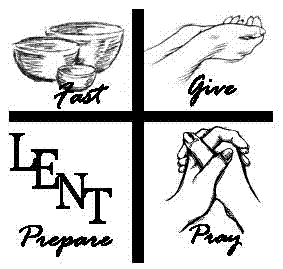This Wednesday, the Universal Church enters the liturgical period of Lent; the 40 days of fasting, prayer and almsgiving, that lead us towards Easter. In his message this year, Pope Benedict called believers to show fraternal concern for one another. His invitation is echoed by the Patriarch of the Holy Land Faud Twal, who asks us not to forget the families struggling to keep a Christian presence alive in the land of Our Lord’s Passion, Death and Resurrection:
He says that in the Holy Land “the situation is still really not encouraging”. “We have these two dimensions that we are called and invited to live: The dimension of sacrifice, in reflection of Our Lord’s Sacrifice and the dimension of hope, in the hope of our Resurrection one day. In my message I write that despite all of our sacrifices we must look forward to the Resurrection”. And he asks Christians worldwide to show fraternal closeness to their brothers and sisters in the Holy Land by fasting for peace this Lent.
In his Lenten message, Pope Benedict XVI called on the faithful to be concerned for one another and “not to remain isolated and indifferent” to the fate of others. Materialism and a sense of self-sufficiency are obstacles to a Christian life of charity, the pope said. Instead of looking first to God and then to the well-being of others, people often have an attitude of “indifference and disinterest born of selfishness and masked as a respect for ‘privacy.'” He said that God’s commandment to love “demands that we acknowledge our responsibility toward those who, like ourselves, are creatures and children of God.”
The annual Lenten message was presented during a Vatican news conference Feb. 7 by Cardinal Robert Sarah, president of the Pontifical Council Cor Unum, the office which handles the pope’s charitable giving, along with Msgr. Segundo Tejado Munoz, the council’s undersecretary. The cardinal highlighted the pope’s call for “fraternal correction” and the church’s prophetic mission in denouncing situations of injustice and poverty in the world. To overcome such injustices, one must get to the moral roots of such situations, he said. Corruption, accumulation of wealth, violence, and living off the work of others without contributing are all cancers that weaken a society from within, the cardinal said. But, he said, the true root of the world’s injustices stems from ignoring or denying God’s existence. By not acknowledging there is a creator and Lord who is greater than man, society degenerates into a “conflictual individualism” and a struggle of one person against another, Cardinal Sarah said.
The theme of the 2012 Lenten message was taken from St. Paul’s Letter to the Hebrews: “Let us be concerned for each other, to stir a response in love and good works.” The pope outlined his message with three points taken from St. Paul’s letter: “concern for others, reciprocity and personal holiness.”





